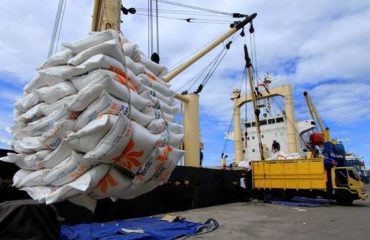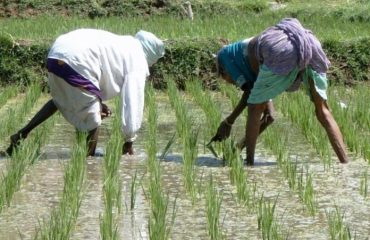By AgroNigeria
There are fears that the lockdown directive imposed by countries across the globe to curb the spread of the dreaded COVID-19 disease, may derail agricultural activities and eventually lead to a humanitarian crisis.
The Food Agriculture Organization (FAO), against this backdrop, has cautioned that farmers and processors may be discouraged from producing food, due to the total clampdown on movements, owing to the pandemic.
Although most countries have exempted those who provide essential services, such as farmers, from the lockdown, there are worries that the situation may impact food production.
While allaying fears over a food crisis, Director-General of the FAO, Qu Dongyu, who in a statement, said that there are enough food supplies to feed the world, also warned that food made not be available in areas where they are most needed.
He said these uncertainties, including fertiliser shortage and provision of inputs, may adversely impact the production of food globally.
“The COVID-19 outbreak, with all the accompanying closures and lockdowns, has created logistical bottlenecks that ricochet across the long value chains of the modern global economy.
“Closures of restaurants and less frequent grocery shopping diminish demand for fresh produce and fisheries products, affecting producers and suppliers, especially smallholder farmers, with long-term consequences for the world’s increasingly urbanised population, even in Manhattan or Manila.
“Uncertainty about food availability can induce policymakers to implement trade-restrictive measures in order to safeguard national food security. Given the experience of the 2007-2008 global food price crisis, we know that such measures can only exacerbate the situation.
“Export restrictions put in place by exporting countries to increase food availability domestically could lead to serious disruptions in the world food market, resulting in price spikes and increased price volatility,” the statement read in part.
Dongyu pointed that if left untackled, the impact of the pandemic may affect poorer nations, especially in sub-Saharan Africa.
He said, “We can say with certainty that any ensuing food crisis as a result of poor policy-making will be a humanitarian disaster that we can avert.
“We already have 113 million people experiencing acute hunger. In sub-Saharan Africa, a quarter of the population is undernourished. Any disruptions to food supply chains will intensify both human suffering and the challenge of reducing hunger around the world. We must, therefore, do everything possible not to let that happen”
He urged that countries must ensure that the food markets are functional, with a large stock of food available, in order to reduce uncertainties and contain panic behaviour in the global markets.
Dongyu assured that the FAO was working round the clock to avert any humanitarian crisis, adding that “we are experiencing a global problem that requires a global response.”
He further advised partnership between governments, the private sector, and all meaning stakeholders to avert any looming food crisis in the face of the COVID-19 pandemic.





